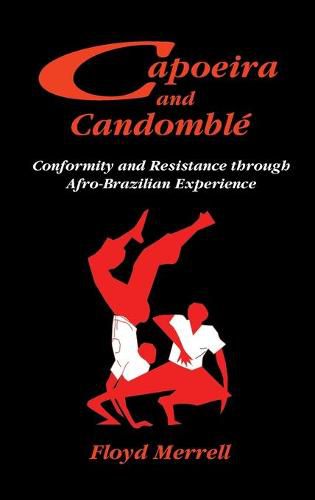Readings Newsletter
Become a Readings Member to make your shopping experience even easier.
Sign in or sign up for free!
You’re not far away from qualifying for FREE standard shipping within Australia
You’ve qualified for FREE standard shipping within Australia
The cart is loading…






Capoeira is a unique music-dance-sport-play activity created by African slaves, and Candomble is a hybrid religion combining Catholic and African beliefs and practices. And while there are numerous books on Candomble and kindred Afro-American religions, none of them effectively combines Candomble and Capoeira. Actually, Capoeira and Candomble are closely tied to one another. Together, they make up a coherent form of life in Brazil within the current process of globalization about which there has been much ballyhoo, eulogies, and condemnation. This study involves the author’s practice of and reflections on the arts of Capoeira and Candomble; it culminates in the idea of an
other logic,
an alternative culture
logic,
about which much lip service is being paid in academic circles, with little to no concrete details. This book, consequently, is one of a kind insofar as it bears on the interdependency of two Afro-Brazilian practices while grounding them in a theoretical framework and at the same time interrelating them with topics of great concern in the initial years of a new millennium: post-colonial and diaspora studies.
$9.00 standard shipping within Australia
FREE standard shipping within Australia for orders over $100.00
Express & International shipping calculated at checkout
Capoeira is a unique music-dance-sport-play activity created by African slaves, and Candomble is a hybrid religion combining Catholic and African beliefs and practices. And while there are numerous books on Candomble and kindred Afro-American religions, none of them effectively combines Candomble and Capoeira. Actually, Capoeira and Candomble are closely tied to one another. Together, they make up a coherent form of life in Brazil within the current process of globalization about which there has been much ballyhoo, eulogies, and condemnation. This study involves the author’s practice of and reflections on the arts of Capoeira and Candomble; it culminates in the idea of an
other logic,
an alternative culture
logic,
about which much lip service is being paid in academic circles, with little to no concrete details. This book, consequently, is one of a kind insofar as it bears on the interdependency of two Afro-Brazilian practices while grounding them in a theoretical framework and at the same time interrelating them with topics of great concern in the initial years of a new millennium: post-colonial and diaspora studies.